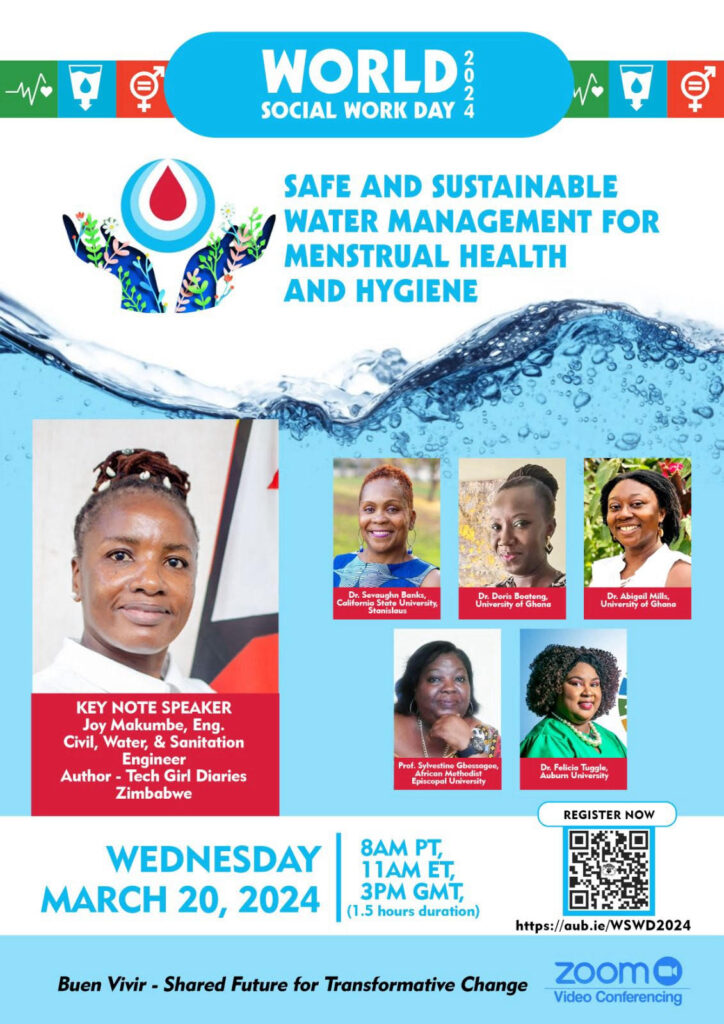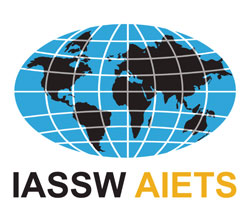In recognition of World Social Work Day 2024 Auburn University invites you to register and attend a virtual webinar on Safe and Sustainable Water Management for Menstrual Health and Hygiene on Wednesday, March 20, 2024 from 11:am-12:30pm ET/ 3pm-4:30 GMT.

Safe and sustainable water management plays a crucial role in ensuring menstrual health and hygiene for individuals, especially in regions with limited access to clean water and proper sanitation facilities. Safe and sustainable water management is essential for promoting the rights and well-being of individuals, safeguarding public health, and advancing sustainable development goals related to water, sanitation, and health. The relationship between water management and menstrual health and hygiene can be understood through various interconnected factors such as access to water, sanitation and infrastructure, waste management, and education and awareness. By integrating menstrual health and hygiene into broader water management strategies, social workers, engineers, and other development actors can work together towards ensuring equitable access to safe water and sanitation for all and promote menstrual health and hygiene as integral components of human rights and well-being.
By the end of the webinar participants will be able to:
- Raise awareness about the challenges regarding water insecurity and Menstrual Health Management and Hygiene.
- Describe safe and sustainable menstrual products and period friendly sanitation facilities.
- Identify grass root strategies social workers and engineers can engage in to enhance water security and menstrual health and hygiene for transformative change.
- Value women’s menstrual rights as global human rights to increase well-being.



 ICSW International Conference 2025
ICSW International Conference 2025 


